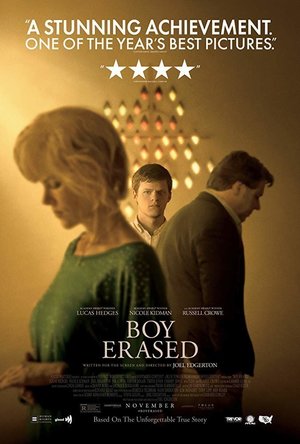Sensitivemuse (246 KP) rated Suicide Club in Books
Aug 18, 2018
It’s an interesting world, where suddenly everything that you thought was normal isn’t anymore and is frowned upon. These special perks are not always granted to everyone because it’s also based on your genetics, your job, and your social standing as well. It’s appealing but at the same time it doesn’t sound so fun and it feels like you’re a drone.
The plot itself was interesting and follows two points of view. Lea and Anja. I prefer Anja’s point of view because she’s part of the underground Suicide Club movement for various reasons. She’s a carefree spirit who does what she wants despite society and its’ demands because she’s seen the other side of things and how it’s affected people she cares about (her mom in this instance). The two characters offer two very different perspectives in the novel and it all comes together nicely and seamlessly.
I rather enjoyed the part with Lea and Kaito on the boat. You feel the emotion and the sadness of what’s to come. You feel the regret of moments missed in life and although it can’t be made up in just one sitting, that one moment together still creates a powerful memory that stays with you - which no one can take away. It’s a bittersweet moment and the most memorable in the book.
Although the plot flowed through nicely, I can’t really say I like the writing style. It drags in some parts and it shows an attempt to be lyrical and poetic with way too many descriptions of smells and sights. I understand the point of it being that instead of becoming a drone like everyone else, stop and just live the moment and take in your surroundings. However it bogs down the reading flow and I found myself struggling to keep the pace. Less lyrical prettiness and let’s just get down to the basics shall we? It would have made the reading more enjoyable.
Overall, a great interesting idea and a good deep read. Worth the time to go through.
Emma @ The Movies (1786 KP) rated Boy Erased (2018) in Movies
Jun 22, 2019 (Updated Sep 25, 2019)
Let's just start by saying that Nicole Kidman is genuinely the best thing about this film. You can feel her shame, and the love she feels for her son... and all of that through the horrendous wig. The wig people are definitely out to get her in these recent films.
Boy Erased certainly doesn't pull any punches. There are two scenes in particular that are brutal and quite shocking, but they hit on completely opposite ends of the scale for me. The first sees a relationship develop between Jared and his male friend at college, this leads to a rape scene that should have a massive impact on the film but it somehow didn't. The second is at the conversion program and we see one of the members getting beaten by his family, this one had some very powerful performances. Two shocking scenes that should surely hold similar impact and yet they don't.
There is a break in this film that takes it from bad to good, that divide comes when the conversion therapy enters the story. Before that point nothing seems to hold much weight. Had there been something at the beginning that alluded to the latter part of the film then that incredibly long set up could have been forgiven.
When it comes to the acting it's really all over the shop. As I said, Nicole Kidman knocked my socks off as the leading lady, but when it came to the leading men I was a little underwhelmed. Crowe's performance didn't make me feel anything about his character, possibly because most of his role appears in the beginning of the film where it feels like nothing happens. Until he was able to start developing Jared's character with his interactions with other group members Lucas Hedges' offering wasn't much to write home about either. I could probably go on for ages about the supporting cast but there's good, there's bad, and there's unnecessary, but I'm sure that all the characters are there for a reason.
The story is an important one and had the scope to be amazing but somewhere along the line some choices were made that meant momentum was lost very early on in the film.
What you should do
I think it's worth a watch, but do be aware that it takes a while to reach its stride.
Movie thing you wish you could take home
I think we could all do with Nancy's ability to realise her mistake and rectify it against such powerful opposition. "Shame on you, and shame on me!"

Colorimetry PRO
Lifestyle and Education
App
Colorimetry PRO is the first assistant to image consultants and professionals related to the world...
Acanthea Grimscythe (300 KP) rated Demon Seed: A novel of terror to horrify you this Halloween in Books
May 16, 2018
The idea of a computer striking fear into someone’s heart is a bit of an oddball, but with the idea of artificial intelligence an all too possible reality, fear over what could happen should the AI take control of itself and evolve is real. In Demon Seed that science is taken too far when Proteus takes control of his own programming and not only stalks the recently divorced Susan Harris, but holds her captive within her own home. With a plan for the ideal race of humans on its mind, Proteus sets forth on a horrifying adventure to create for himself the perfect body, and poor Susan is a key player in his endeavor.
As a premise, especially for something originally written in the early 70’s, the idea behind Demon Seed is intriguing. I find Proteus to be a very disturbing character, and the way in which Koontz pens Proteus gives me chills. I remember once, a long time ago, having a similar feeling while reading a novel by P. T. Deutermann, in which the occasional chapter was in the killer’s perspective. I don’t remember the name of the book, only the fact that I was left nerve-wracked. Koontz’s Proteus is not too far off from that mark and the mere fact that Koontz is able to capture that essence of a true sociopath with an inanimate object (if I can really call Proteus that) probably factors into my opinion on the book the most. The other characters, and to some degree Susan as well, strike me as a bit one-dimensional. They have a single, solitary purpose and while they possess wildly different backgrounds, the way in which the story progresses does not leave room for the development of feelings toward the characters.
Demon Seed is an extremely quick read, and if you’ve got the time to sit for a few hours and thumb through its pages, I’d definitely recommend it. While it isn’t among my favorite books, and only receives a passing “meh” score from me, it was enjoyable. The linear plot line, told from a single, solitary perspective, makes it an easy read as well. There is also a movie adaptation of the novel, but it is not presently on my to-watch list.
Object-Orientation, Abstraction, and Data Structures Using Scala
Mark C. Lewis and Lisa L. Lacher
Book
Praise for the first edition: "The well-written, comprehensive book...[is] aiming to become a de...

Nicki Minaj: The Empire
Music and Games
App
RULE THE WORLD WITH NICKI MINAJ Join the Queen of Rap in a dramatic adventure as you rise from...

Read4Kids - Kids learn to read in 20 easy lessons
Education and Book
App
Read is a 20-lesson program designed to help kindergarten and elementary school age children (4–8...

Stock Control Inventory
Finance and Business
App
List your items, sort them into categories and associate them with places of storage. Easily manage...

Best Western to Go
Travel and Business
App
Best Western to Go!® makes it easy to make reservations for any of our 4,100 hotels worldwide,...



